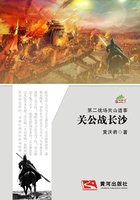It has never been explained why Jefferson Davis was chosen President of the Confederacy. He did not seek the office and did not wish it. He dreamed of high military command. As a study in the irony of fate, Davis's career is made to the hand of the dramatist. An instinctive soldier, he was driven by circumstances three times to renounce the profession of arms for a less congenial civilian life. His final renunciation, which proved to be of the nature of tragedy, was his acceptance of the office of President. Indeed, why the office was given to him seems a mystery. Rhett was a more logical candidate. And when Rhett, early in the lobbying at Montgomery, was set aside as too much of a radical, Toombs seemed for a time the certain choice of the majority. The change to Davis came suddenly at the last moment.
It was puzzling at the time; it is puzzling still.
Rhett, though doubtless bitterly disappointed, bore himself with the savoir faire of a great gentleman. At the inauguration, it was on Rhett's arm that Davis leaned as he entered the hall of the Confederate Congress. The night before, in a public address, Yancey had said that the man and the hour were met. The story of the Confederacy is filled with dramatic moments, but to the thoughtful observer few are more dramatic than the conjunction of these three men in the inauguration of the Confederate President.
Beneath a surface of apparent unanimity they carried, like concealed weapons, points of view that were in deadly antagonism.
This antagonism had not revealed itself hitherto. It was destined to reveal itself almost immediately. It went so deep and spread so far that unless we understand it, the Confederate story will be unintelligible.
A strange fatality destined all three of these great men to despair. Yancey, who was perhaps most directly answerable of the three for the existence of the Confederacy, lost influence almost from the moment when his dream became established. Davis was partly responsible, for he promptly sent him out of the country on the bootless English mission. Thereafter, until his death in 1863, Yancey was a waning, overshadowed figure, steadily lapsing into the background. It may be that those critics are right who say he was only an agitator. The day of the mere agitator was gone. Yancey passed rapidly into futile but bitter antagonism to Davis. In this attitude he was soon to be matched by Rhett.
The discontent of the Rhett faction because their leader was not given the portfolio of the State Department found immediate voice. But the conclusion drawn by some that Rhett's subsequent course sprang from personal vindictiveness is trifling. He was too large a personality, too well defined an intellect, to be thus explained. Very probably Davis made his first great blunder in failing to propitiate the Rhett faction. And yet few things are more certain than that the two men, the two factions which they symbolized, could not have formed a permanent alliance. Had Rhett entered the Cabinet he could not have remained in it consistently for any considerable time. The measures in which, presently, the Administration showed its hand were measures in which Rhett could not acquiesce. From the start he was predestined to his eventual position--the great, unavailing genius of the opposition.
As to the comparative ignoring of these leaders of secession by the Government which secession had created, it is often said that the explanation is to be found in a generous as well as politic desire to put in office the moderates and even the conservatives.
Davis, relatively, was a moderate. Stephens was a conservative.
Many of the most pronounced opponents of secession were given places in the public service. Toombs, who received the portfolio of State, though a secessionist, was conspicuously a moderate when compared with Rhett and Yancey. The adroit Benjamin, who became Attorney-General, had few points in common with the great extremists of Alabama and South Carolina.
However, the dictum that the personnel of the new Government was a triumph for conservatism over radicalism signifies little.
There was a division among Southerners which scarcely any of them had realized except briefly in the premature battle over secession in 1851. It was the division between those who were conscious of the region as a whole and those who were not.
Explain it as you will, there was a moment just after the secession movement succeeded when the South seemed to realize itself as a whole, when it turned intuitively to those men who, as time was to demonstrate, shared this realization. For the moment it turned away from those others, however great their part in secession, who lacked this sense of unity.
At this point, geography becomes essential. The South fell, institutionally, into two grand divisions: one, with an old and firmly established social order, where consciousness of the locality went back to remote times; another, newly settled, where conditions were still fluid, where that sense of the sacredness of local institutions had not yet formed.
A typical community of the first-named class was South Carolina.
Her people had to a remarkable degree been rendered state-conscious partly by their geographical neighbors, and partly by their long and illustrious history, which had been interwoven with great European interests during the colonial era and with great national interests under the Republic. It is possible also that the Huguenots, though few in numbers, had exercised upon the State a subtle and pervasive influence through their intellectual power and their Latin sense for institutions.
In South Carolina, too, a wealthy leisure class with a passion for affairs had cultivated enthusiastically that fine art which is the pride of all aristocratic societies, the service of the State as a profession high and exclusive, free from vulgar taint.















